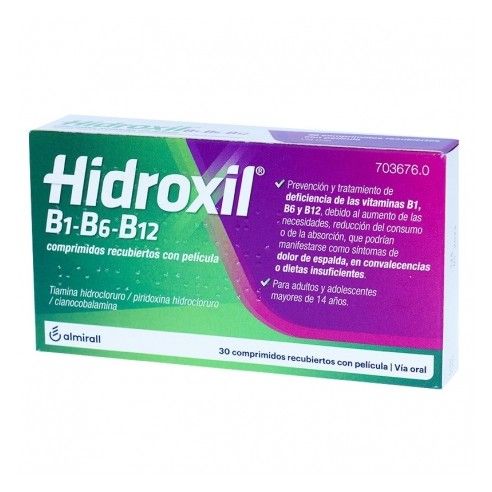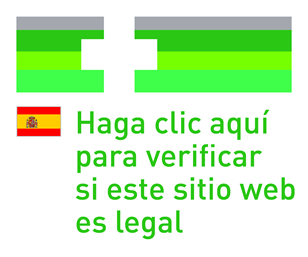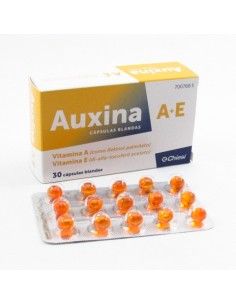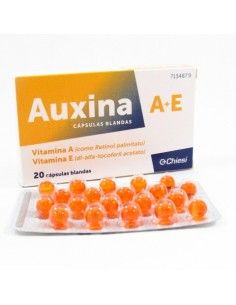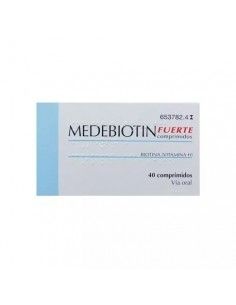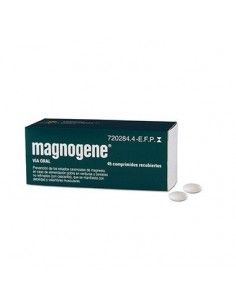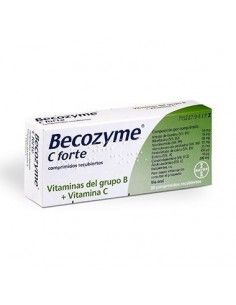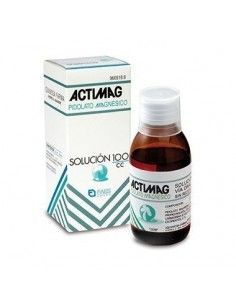Hidroxil B1 B6 B12 30 Tablets
Indications of Hidroxil
This medicine is indicated for the prevention and treatment of deficiency of vitamins B1, B6 and B12 in adults and adolescents over 14 years of age. This deficiency may be caused by an unexpected increase in the need for these vitamins, a reduction in their consumption or absorption, convalescence or insufficient diets.
Action and mechanism of Hidroxil B1 B6 B12
The active ingredients of Hidroxil are thiamine (B1 water-soluble vitamins), pyridoxine (B6) and cyanocobalamin (B12), whose action is essential in many of the processes that take place in human metabolism. Hydroxil tablets help prevent and treat deficiencies of these vitamins and alleviate associated discomfort, such as back pain, for example.
Dosage
Follow exactly the instructions for use given in the package leaflet for this medicine (available for download at the top of this description), or as directed by your doctor or pharmacist.
Adults and adolescents over 14 years of age
1 tablet a day with a large glass of water.
Treatment should not last more than 15 days, although your doctor may extend it if he or she thinks it is necessary.
If after 7 days of treatment you do not notice any improvement or even get worse, consult your doctor.
If you forget to take your dose of Hydroxil, do not try to make up for it by taking a double dose.
If you have taken more Hydroxil than you should, you may experience gastrointestinal discomfort and headaches. Due to its pyridoxine content, you may experience nervous disorders, tingling, numbness in feet and hands, unsteady gait, reduced sensitivity, photosensitivity, skin rashes, drowsiness, lethargy, difficulty breathing and other effects, depending on the amount taken in excess. Rarely, a severe allergic reaction, such as anaphylactic shock, may occur.
In children, accidental ingestion of very high doses of vitamin B6 can cause profound sedation, weakness and respiratory distress.
In case of overdose or accidental ingestion, go to your nearest medical centre, consult your doctor or pharmacist or call the Toxicological Information Service, telephone: 91 562 04 20, indicating the medicine and the amount taken.
Contraindications
There are a number of circumstances under which you should not take Hidroxil B1 B6 B12:
If you are allergic to vitamin B1, B6 or vitamin B12, in any of its variants, to cobalt or to any of the other components of this medicine.
If you are being treated with Parkinson's medication, such as levodopa.
If you have Leber's disease or decreased visual acuity.
Due to the doses contained in this medicine, you should not take this medicine in the following cases:
If you have kidney or liver disease.
If you are pregnant or breast-feeding.
If you are under 14 years of age.
If you have a blood disease, such as anaemia.
There have been cases of dependence and withdrawal when taking pyridoxine (vitamin B6) for more than a month and even lower doses than this medicine contains.
If you have to spend many hours in the sun, as you run the risk of photosensitivity.
If you have had an allergy to vitamin B1 before taking this medicine.
If you have drunk alcohol to excess.
If you are a woman of childbearing age and are not using an effective method of contraception.
This medicine is contraindicated in children under 14 years of age.
Interference with laboratory tests
Before undergoing any diagnostic test, tell your doctor that you are taking Hidroxil, as it may affect the results.
Incompatibility with other medicines
Before taking Hidroxil B1 B6 B12, tell your doctor if you have taken or have to take any other medicines, such as:
Levodopa.
Phenobarbital.
Altretamine.
Amiodarone.
Neuromuscular blocking drugs.
5-Fluorouracil.
Antibiotics for tuberculosis.
Penicillamine.
Hydralazine.
Immunosuppressants.
Ascorbic acid (in large doses).
Neomycin.
Chloramphenicol for injection.
Colchicine.
H2 antagonists.
Aminosalicylic acid (in long treatments).
Omeprazole.
Medicines for epilepsy.
Metformin.
Sustained-release potassium preparations.
Cobalt radiation.
Folic acid in high doses.
Oral contraceptives.
Pharmacist's recommendation
B vitamins are responsible for the production of red blood cells and the breakdown of carbohydrates. Deficiencies of these vitamins, however small, cause fatigue, lack of energy and lack of motivation, and can even lead to depression. If you have been diagnosed with a B vitamin deficiency, you should include foods such as meats, whole grains, legumes, seeds, fish, fruits and vegetables in your diet.
Adverse reactions
As with other medicines, Hydroxil can cause side effects, although the number of people who experience them is small:
Infrequently (up to 1 in 100 people) may occur:
Nausea.
Vomiting.
Headache.
Drowsiness.
paresthesia
skin rashes
Hypersensitivity to vitamins B1, B6 and B12.
Frequency not known (cannot be determined from available data):
Digestive upset.
Diarrhoea.
Loss of appetite.
Photosensitivity.
Reduction in the number of platelets (very occasionally).
dizziness
restlessness
insomnia
Disorder with reduced sensation and tingling (disappears when treatment is stopped).
Vitamin B6 withdrawal syndrome (in high doses).
Swelling and irritation of the eyes.
Changes in urine colouring.
Anaphylactic reaction with itching (occasionally).
Breathing difficulty.
Nodular and pus-like condition of the face and neck (very rarely).
In case of allergic reaction, discontinue treatment and consult your doctor immediately.
Storage
Store Hydroxil B1 B6 B12 below 25°C. Keep out of the sight and reach of children. Do not use this medicine after the expiry date stated on the pack. Do not throw medicines down the drain or throw them away. Use the SIGRE point at your nearest pharmacy.
Composition
Thiamine hydrochloride (vitamin B1).
Pyridoxine hydrochloride (vitamin B6).
Cyanocobalamin (vitamin B12).
Copovidone.
Sodium carboxymethyl starch.
Sodium stearyl fumarate.
Modified maize starch.
Citric acid.
Trisodium citrate.
Silicon dioxide.
Hypromellose.
Titanium dioxide.
Natural wax.
Glycerol.
Medium chain triglycerides.
Carminic acid.

